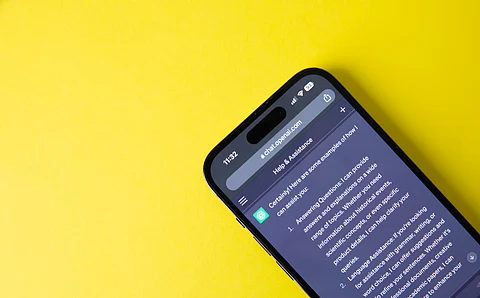

OpenAI has launched GPT-5, its latest artificial intelligence chatbot model, claiming it delivers PhD-level expertise across various domains.
The company describes GPT-5 as "smarter, faster, and more useful," marking a significant advancement in AI technology.
This release intensifies competition among tech giants vying to develop the most advanced AI chatbot, following claims by Elon Musk that his Grok model surpasses PhD-level performance.
OpenAI emphasizes that GPT-5 reduces "hallucinations," where AI generates fabricated responses, aiming for more accurate and honest answers.
GPT-5 is designed to excel in complex tasks, particularly in coding and reasoning.
The model can create entire software applications from scratch, making it a valuable tool for developers.
Its improved reasoning capabilities allow it to provide detailed logic and inference, offering responses that feel more human-like.
OpenAI’s CEO, Sam Altman, highlighted the model’s evolution, noting that while GPT-3 resembled a high school student and GPT-4 a college student, GPT-5 feels like interacting with an expert in any field.
The company is rolling out GPT-5 to all ChatGPT users, with a free tier and enhanced access for subscribers, signaling a shift toward broader accessibility.
Despite the enthusiasm, experts urge caution regarding GPT-5’s implications.
Professor Carissa Véliz of the Institute for Ethics in AI suggested that the model’s touted capabilities might be exaggerated for marketing purposes, questioning its profitability and true emulation of human reasoning.
Gaia Marcus of the Ada Lovelace Institute highlighted a growing gap between AI advancements and the need for robust regulation to ensure ethical deployment.
Concerns also arise about content authenticity, with Grant Farhall of Getty Images stressing the importance of scrutinizing AI training processes to protect creators’ rights.
As GPT-5 becomes available, its real-world performance will determine whether it lives up to OpenAI’s ambitious claims.